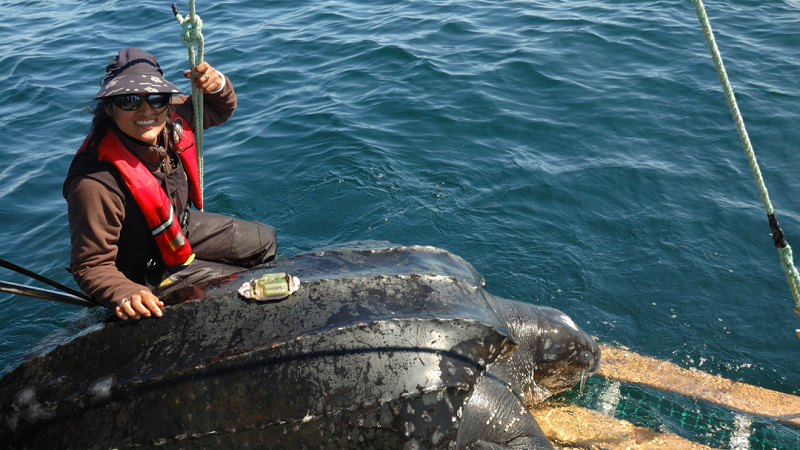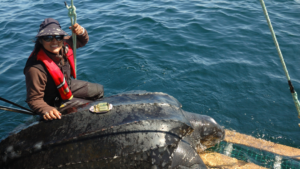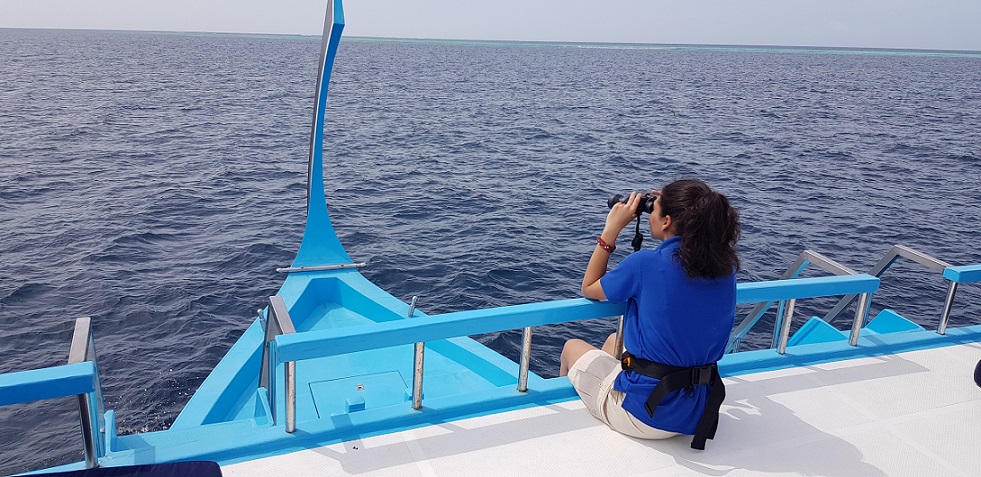
So what has brought you to this blog is the passion for the oceans and marine life. And nothing would make you happier than turning that passion into a career. A career in marine conservation or ocean conservation sounds fascinating. Still, sometimes, you don’t know where to get started or what to expect.
We have composed this blog to give you a better idea of making a successful marine conservation career.
How to build a career in marine conservation?
A career in Marine Conservation is terrific, challenging, adventurous and sounds fun. But that’s not all there is to it. You may picture this career choice as diving in exotic locations, conducting research and travelling. As a marine biologist, you will undoubtedly travel and dive in fabulous places. Still, most of the time, you will find yourself behind a desk either writing research papers or goggling at spreadsheets or dealing with hardships and challenges in the field.
Like any other career, a career in marine conservation has its challenges. Let’s first look at the course one could follow for a successful marine conservation career.
The qualification required for a career in marine conservation
You would require a qualification that is either marine science or oceanography focused for a marine conservation career. The following undergraduate programs can get you started:

Different industries offering opportunities to marine biologists
- Marine Conservation NGOs: Like various NGOs, even marine conservation NGOs have requirements for multiple positions in their organization. As a marine biologist, you could be participating in different conservation projects undertaken by the NGO.
- Government Agencies: There are many sizeable government-owned research agencies where marine biologists can find challenging roles.
- Universities: As a marine biologist, you can find roles in a university for teaching and/or research.
- Ecotourism Firms: Many scuba diving centres worldwide have a conservation wing, which requires a fulltime marine biologist to take the lead on or participate in projects. A role like this could generally mean living in an exotic location but comes with long working hours and physical labour. The skillset you would require would be scuba diving, first-aid, and boat handling. As a marine biologist, you can also find a naturalist role, educating people about the marine ecosystem in the ecotourism industry.
- Private Businesses: As a marine biologist, you could also find research and development roles in private businesses.
Salary of a marine biologist
One does not become a marine biologist if the goal is to get rich. Marine conservationists are in this field to make a difference in protecting something they love. It’s more about the passion than the money. According to the Bureau of Labor Statistics (United States), marine and wildlife biologists’ average pay is $63,270 annually. This is not bad considering the exciting and varied experience a person can get. Moreover, it’s a great responsibility as there is an urgent need to protect and restore our oceans and marine ecosystems.
The final take on choosing a career in marine conservation
So, you have decided to pursue a career in marine conservation! It’s a broad field where specialization can be crucial. When starting, you can begin by reading research papers and journals. If something picks your interest try to attend an online seminar, conference or workshop related to it.
We have even included a few interviews with marine biologists at the end of our article to help you get a clear idea about the career choice you plan to make.
Hands-on experience in conservation goes a long way. Look for volunteering and interning opportunities to better understand your area of interest. Some internships earn you an academic credit, while most are paid or unpaid.
Get in touch with NGOs and marine biologists. They are passionate not only about conserving the ocean but also about spreading the knowledge they hold. Many marine biologists or marine conservationists will be happy to help and guide you.
Several organizations require you to have a formal education to join them. While some may require only a bachelors degree in Marine or Earth Science, some may require you to have a masters or doctoral degree in a particular field. Some could also require you to have some level of past fieldwork experience.
Universities worldwide offer bachelor degrees in Marine Biology, Marine Science and Earth Science. Unfortunately, universities do not provide Marine Biology at the undergraduate level in India. Most Universities provide Marine Biology degrees in the Post Graduate level. To be eligible for a post-graduation in Marine Science you must have a degree in any Biological science.
If you see marine conservation as an opportunity to dive every day in exotic locations, you should reconsider. As a marine biologist, you will need to also spend time writing research papers and grant proposals. However, we wouldn’t say you would not get to travel to exotic locations and dive. It is just a few of the perks that come with the career.
Lastly, with a marine conservation career, scientific writing skills are crucial. You can start working on your scientific writing skills by reading journals and published research papers. In some cases, you would have to collect biological samples, record changes in the environment, identify marine species, and other ecosystem changes. Having good observational, analytical and statistical skills is a huge plus. Various internships can help you build practical fieldwork skills.
Leadership and project management skills are essential, especially for leading research projects or programs. Several universities have research positions open to teach and simultaneously work on your research. If you are interested in teaching or educational outreach programs, presentation and public speaking skills are essential.
A career in marine conservation is excellent, and all you need to do is find your area of interest and start working towards it. Acquiring knowledge in your domain of interest from an early stage would improve career prospects. Finally, as a marine biologist, you have a great responsibility towards the health of our oceans and the marine ecosystem. It is a career which comes with a lot of challenges, but also a lot of satisfaction.
Let us now read a few life experiences from our team members and friends who are working in marine conservation.
Insights from Dr. Manjula Tiwari about working in the conservation domain

What do you enjoy most about being a marine biologist?
I enjoy the multi-faceted nature of being a marine biologist and applying sound science and an understanding of human behaviour to address conservation issues. Even though marine turtle research and conservation are my areas of interest, the scope of my work is much broader and includes the conservation and management of the oceans and coastal regions as well as working with all levels of society and governance from the government of the country to the local coastal community. This helps me develop a balanced, scientific, holistic, and realistic approach that integrates people into conservation solutions.
Any advice for someone interested in pursuing a career in marine biology?
Marine biology covers a broad realm, and you have to discover what aspect fascinates you the most so that you can define your career as a marine biologist. Start by getting as much hands-on experience as you can and learn as much as you can — volunteer or get internships with marine projects/organizations, join marine clubs, etc. Being a marine biologist sounds and looks like glamorous work, but in reality, it requires hard work, dedication, conviction, patience, and very often physical discomforts. Therefore, getting hands-on experience will help you decide if marine biology is for you and what career path you should follow as a marine biologist.
- Marine biology
- Marine science
- Oceanography
- Zoology
- Botany
- Earth sciences
With a broader-based education like zoology or botany, you will require a more marine focused masters degree. A career in marine conservation is research-based thus a postgraduate or a PhD is recommended for better career prospects.
What skills are essential for a career in marine conservation?
The skills required would depend on the area of expertise or work scope.
- An academic position in a university would require strong interpersonal, communication and teaching skills, depending on the position a vital research and publication track record.
- For a fieldwork related job, you should be prepared for long working hours, have good physical fitness, readiness to live in very basic conditions or onboard research vessels. You might even be required to have ample experience in scuba diving.
- A fundraising role in a marine conservation NGO would require strong communication and marketing skills. In the 21st century, working knowledge of social media marketing can be necessary.
- For a research-based role in marine conservation, skillsets such as a strong science background, report writing, research paper publication, and information technology would be fundamental.
- Working as a lab technician will require good laboratory skills, interpreting, sequencing, and report writing skills.
These are just a few of the skills according to different job roles. A marine biologist’s position can be narrow or vast depending on choices made due to the broad scope of study in the domain, and cannot be penned down to a few points. The above information gives you an idea about the possibilities of work or job profiles you will find as a marine biologist.
Skills an organization looks for in a marine biologist:
The skillset depends very much on the job role, but here are a few skills that organizations look for in a marine biologist. Please note that this is not an exhaustive list.
- Report writing
- Healthy physical fitness (depending on the job)
- Quantitative skills
- Research & monitoring
- Scuba diving
- Interpersonal skills
- Social media marketing
- Boat handling
- First aid
- Publication
- Fundraising
- Photography

The steps to building a successful career in marine conservation –
- A college degree in marine science: Maybe you’re in school or have just finished school. Or even somebody looking to switch careers. The first step to building a career in ocean conservation is to get a relevant college degree. If you’re still in school, there are a lot of short courses that you could take. So what education should you take for a career in marine conservation? An undergraduate degree in marine biology, marine science, zoology, or environmental science would be a great start. If your undergraduate degree is a broader science degree like zoology, botany, or environmental science, you would require a masters in marine science or biology.
- Short Courses as an extra: If you still have time in college, then a few short term courses in marine sciences would be a good idea. As it is a career choice, it is crucial to keep expanding your knowledge and understanding of the marine ecosystem.
- Volunteering/Interning: An excellent way to gain hands-on experience in marine conservation in high school or college before completing your studies would be through paid/unpaid internships or volunteering programs. It is crucial to get some conservation experience before you get to job hunting. Please feel free to write to us to find out about the current volunteering programs or internship opportunities at Kuddle Life Foundation.
- Scuba diving Certification: A certification in scuba diving is not necessary, but can always add up to your resume. Being a marine biologist or ocean conservationist, it would be great to go underwater and witness the remarkable marine ecosystem with your own eyes. Having a career in marine conservation doesn’t require you to be a scuba diver, as there are many land-based jobs.
Marine biology and conservation is a vast field. From studying marine science, ecology, and evolution to studying the behavioural traits of particular species, the human impact on oceans, rescuing and rehabilitating endangered species and ecosystems, there is a lot to learn and be a part of.
Jobs in marine conservation
The scope is broad in marine conservation, and you could find a variety of roles in various organizations.
Organizations that hire a marine biologist
- Scientific agencies
- Private businesses
- Environmental conservation NGOs
- Universities
- Ecotourism organizations
- Government agencies
The positions you can find as a marine biologist are vast and varied, and could range from administration, fundraising, accounting to conservation and research. Generally, as a marine biologist, you could find work either on individual projects or permanently.

Different industries offering opportunities to marine biologists
- Marine Conservation NGOs: Like various NGOs, even marine conservation NGOs have requirements for multiple positions in their organization. As a marine biologist, you could be participating in different conservation projects undertaken by the NGO.
- Government Agencies: There are many sizeable government-owned research agencies where marine biologists can find challenging roles.
- Universities: As a marine biologist, you can find roles in a university for teaching and/or research.
- Ecotourism Firms: Many scuba diving centres worldwide have a conservation wing, which requires a fulltime marine biologist to take the lead on or participate in projects. A role like this could generally mean living in an exotic location but comes with long working hours and physical labour. The skillset you would require would be scuba diving, first-aid, and boat handling. As a marine biologist, you can also find a naturalist role, educating people about the marine ecosystem in the ecotourism industry.
- Private Businesses: As a marine biologist, you could also find research and development roles in private businesses.
Salary of a marine biologist
One does not become a marine biologist if the goal is to get rich. Marine conservationists are in this field to make a difference in protecting something they love. It’s more about the passion than the money. According to the Bureau of Labor Statistics (United States), marine and wildlife biologists’ average pay is $63,270 annually. This is not bad considering the exciting and varied experience a person can get. Moreover, it’s a great responsibility as there is an urgent need to protect and restore our oceans and marine ecosystems.
The final take on choosing a career in marine conservation
So, you have decided to pursue a career in marine conservation! It’s a broad field where specialization can be crucial. When starting, you can begin by reading research papers and journals. If something picks your interest try to attend an online seminar, conference or workshop related to it.
We have even included a few interviews with marine biologists at the end of our article to help you get a clear idea about the career choice you plan to make.
Hands-on experience in conservation goes a long way. Look for volunteering and interning opportunities to better understand your area of interest. Some internships earn you an academic credit, while most are paid or unpaid.
Get in touch with NGOs and marine biologists. They are passionate not only about conserving the ocean but also about spreading the knowledge they hold. Many marine biologists or marine conservationists will be happy to help and guide you.
Several organizations require you to have a formal education to join them. While some may require only a bachelors degree in Marine or Earth Science, some may require you to have a masters or doctoral degree in a particular field. Some could also require you to have some level of past fieldwork experience.
Universities worldwide offer bachelor degrees in Marine Biology, Marine Science and Earth Science. Unfortunately, universities do not provide Marine Biology at the undergraduate level in India. Most Universities provide Marine Biology degrees in the Post Graduate level. To be eligible for a post-graduation in Marine Science you must have a degree in any Biological science.
If you see marine conservation as an opportunity to dive every day in exotic locations, you should reconsider. As a marine biologist, you will need to also spend time writing research papers and grant proposals. However, we wouldn’t say you would not get to travel to exotic locations and dive. It is just a few of the perks that come with the career.
Lastly, with a marine conservation career, scientific writing skills are crucial. You can start working on your scientific writing skills by reading journals and published research papers. In some cases, you would have to collect biological samples, record changes in the environment, identify marine species, and other ecosystem changes. Having good observational, analytical and statistical skills is a huge plus. Various internships can help you build practical fieldwork skills.
Leadership and project management skills are essential, especially for leading research projects or programs. Several universities have research positions open to teach and simultaneously work on your research. If you are interested in teaching or educational outreach programs, presentation and public speaking skills are essential.
A career in marine conservation is excellent, and all you need to do is find your area of interest and start working towards it. Acquiring knowledge in your domain of interest from an early stage would improve career prospects. Finally, as a marine biologist, you have a great responsibility towards the health of our oceans and the marine ecosystem. It is a career which comes with a lot of challenges, but also a lot of satisfaction.
Let us now read a few life experiences from our team members and friends who are working in marine conservation.
Insights from Dr. Manjula Tiwari about working in the conservation domain


Your support matters!
Help us reach more people. Share this post with your friends!